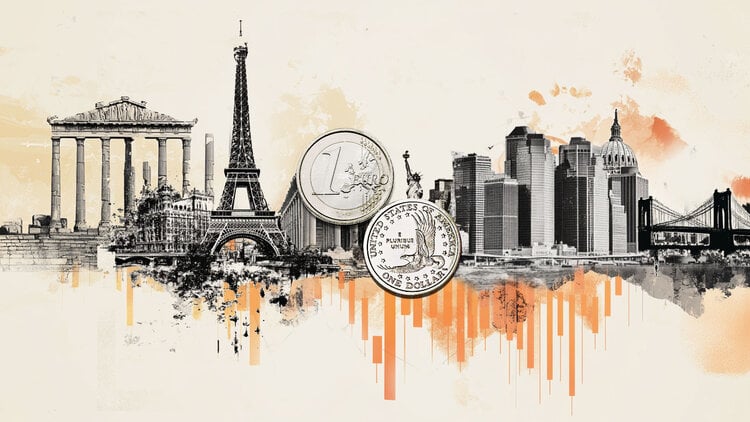The couple of zootechnicians Silvia and Douglas three times postponed the wedding party during the Covid-19 pandemic. During this period, Silvia became pregnant with Clara, who was born in November 2020. Even with the delays and uncertainties, the couple did not fail to fulfill their dream of going up to the altar and saying the long-awaited “yes”.
The wedding finally took place on October 23, in Sinop (MT), where the couple met at college. Planning for the wedding party, which started in June 2019, began after nearly 10 years of dating.
“We signed the first contract, with the ceremonialist, in June 2019. But until then, it was just planning. In July we started to hire other suppliers. The wedding was scheduled for June 13, 2020. However, when the pandemic broke out in March, we had not rescheduled,” says Silvia Ramos Emerick.
The couple kept the date until they saw that the pandemic was not passing away. “In May, we saw that it was really unfeasible to have the wedding, both for our own safety and the safety of our guests, because approximately 150 guests would come from the region of Espírito Santo, which is from the Douglas family, and from Minas Gerais and Goiás, from my family and even our friends here in Sinop. The situation here was very critical, so we decided to postpone the wedding for the first time to September”, adds Silvia.
But September arrived and the pandemic was far from over. “We postponed it to September because we didn’t think the pandemic would last that long. We were not aware of the seriousness at the beginning, when the state and the city decided to close the whole of Brazil, practically. We were very scared and rescheduled the wedding for the second time, from September 2020 to April 2021”, reports Silvia.
Before changing the date and year of the ceremony, Silvia discovered that she was pregnant. “In April 2020 we found out I was pregnant. So all this was one more reason to redouble our care regarding the pandemic, our health, our daughter and our family members in general”, she said.
The long-awaited wedding finally took place last month. “Thank God in 2021 things started to get better. In July 2021 about 80% of the guests were already vaccinated with the second dose of the vaccine, so this provided a much greater security. There was also alcohol gel available and tables were separated by social groups. As the wedding took place on a farm, the atmosphere was open”, says the newlywed.
Increase in expenses
Even with the rescheduling of the date, Silvia says that there was not much variation in expenses. The final price varied a little especially because of the change in the party location. “With regard to fines and reimbursements, I didn’t have a very high expense, we didn’t pay a fine. The pandemic scenario made us reduce [os convidados] for 100 people because things had readjustment, such as food. But as people started taking the second dose of the vaccine, we increased it to 150 guests again”, he explained.
“We paid a difference in buffet and location, as we changed the date to October, and in Sinop it rains a lot during this period. So what we paid out of the contract was because of climate change and for increasing the number of guests.”
The couple Ana Karollyne and William, residents of São Bernardo do Campo (SP), scheduled the wedding ceremony for July 2021. Even with the pandemic still in progress, they did not postpone the event, which began to be planned in 2019, later of four years of relationship.
“We went through a period of doubts, because we didn’t know if it would be possible to carry out [a festa]. It was all very new and no one quite understood what was going on. We decided not to postpone it, because we always trust in God so that this moment so dreamed by us could come true as we wished. When we got married, a large part of our guests had already been vaccinated with at least one dose of the vaccine”, says materials analyst Ana Karollyne Fernandes.
Security measures
The religious ceremony was held in a Catholic church, following security measures and protocol. “A maximum of 200 people in the church, sitting two people per pew (one at each end) and interspersing the pews, a pew with two people, a pew with one person, to follow the distance. The godparents were allowed to sit together. There was a temperature measurement at the entrance and use of alcohol gel. Everyone had to wear a protective mask at all times, with the exception of the newlyweds”, detailed Ana Karollyne.
To carry out the party, the couple adopted several measures. “The first was the time, we got married in the morning, as my city had a ‘curfew’. The ceremony was at 11am, then there was the party and ended at 7:30pm. At first we would get married at night, starting at 8 pm”, he detailed.
As well as the religious ceremony, the party also had safety and hygiene protocols. “We organized all the tables with a maximum of eight seats (the capacity before the pandemic was 12 seats), all with members of the same family or people who live with us every day. We put alcohol gel on every table and in the restrooms. There was no dance floor. The use of a mask was mandatory and lunch was served on the plate ready, to avoid queues and crowding to serve.”
According to Ana Karolinna, none of the guests got sick after the event. “The guests respected and super praised the security measures. We have not had any reported cases of contamination after the wedding,” he said. For the couple, there was no change in values. “It would already be in July 2021. From the beginning, we planned for it to be on the date it happened. In terms of values, we did not change, as all contracts were closed in 2019 and 2020.”
more expensive budget
For those who did not sign a contract before the pandemic, however, getting married in 2021 became more expensive. According to the calculation of the Brazil Agency at a buffet in the East Zone of São Paulo, a party for 50 people in 2020, with the cheapest menu option and space rental cost R$23,650.
In 2021, the value for an identical event rose to R$25,150. Anyone who wants to leave a party in the same pattern for 2022 will pay R$ 26,900. The simulation of the event does not include decoration – which doesn’t cost less than R$ 5 thousand –, nor sound, DJ and lighting, which are around R$ 4 thousand.
Industry expectations
According to data from a website specialized in organizing and consulting weddings, 150 thousand weddings should be organized by the company www.casamentos.com.br by the end of 2021.
“The advance of vaccination and the drop in the transmission of the virus coincide with the celebration of the links foreseen for the end of the year”, points out the company, which registered an increase of 92% in the number of new users in the last six months.
The search for suppliers follows the positive trend. The number of quote requests since the beginning of October this year is 35% higher than the supplier quote requests made by couples in the same period of 2019.
The specialized company expects to close the year with more than 700,000 weddings celebrated in the country, very close to the figures for 2020 – which still had a pre-pandemic first quarter – but still far from the figures for 2019, when it organized or advised more than 965 a thousand ceremonies.
Data show that six out of ten couples postponed the wedding date set for 2020. Most of them rescheduled it to December 2021. Traditionally, the months of September to December are among the most sought after for this type of celebration. One in three of the newlyweds who searched the site intend to invite up to 150 people; only 15% will have a maximum of 50 guests.
Tendencies
In addition to the decrease in the number of guests, other trends were observed in celebrations scheduled for 2021, thinking about safety and economy. Couples are increasingly looking for daytime and outdoor events, as well as more intimate parties, where only the family participates.
For those who don’t give up sharing the day with many friends, the wedding with online transmission allows people from other cities to follow the “Yes” moment.
Getting married during the week is an option for those who want to save, as the rentals and services usually offer discounts between Monday and Thursday.
Other measures to avoid queues and crowding among guests include the time to serve food and drink: the trend is to replace bars with menus of cocktails and drinks that the guest brings to their table. The self-service system has been replaced by dishes set up and served at the tables.
Reference: CNN Brasil







